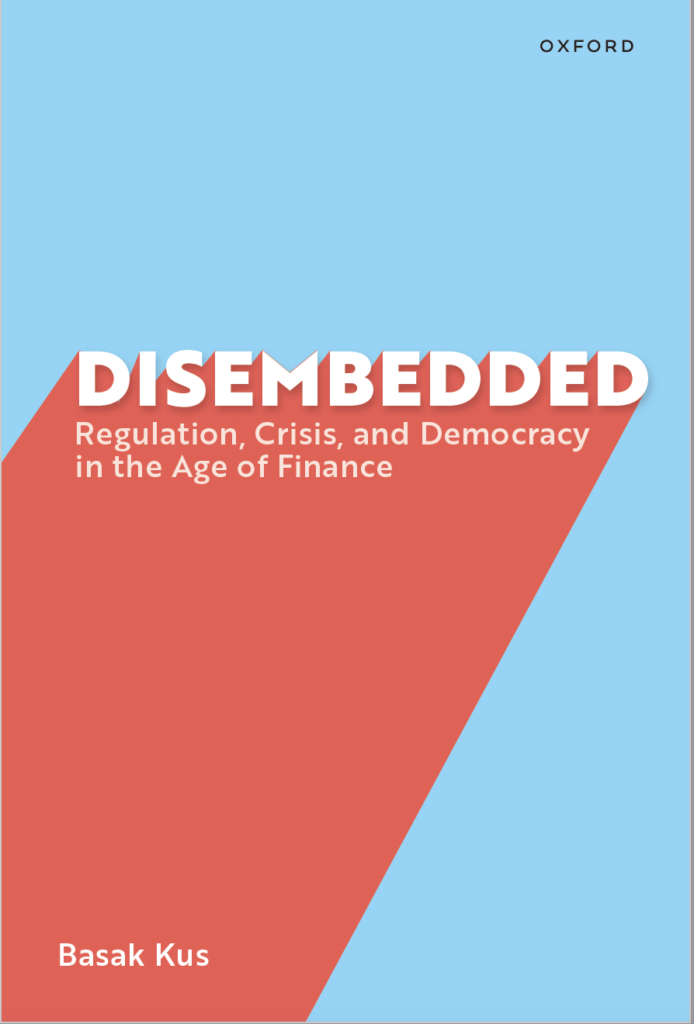“During the last two decades, there has been much scholarly and popular interest in the financialization of the American economy–why the turn to finance has taken place, what constituted it, and what has come out of it. In Disembedded, Basak Kus draws from the theories of Karl Polanyi–one of the greatest and most influential political economists of the twentieth century–to answer these questions. Focused primarily on the state’s regulatory role in a dominantly financialized economy, Kus examines how neoliberal principles influenced the evolution of American regulatory policies, shaping the financial sector’s operations and practices. Her narrative traces the trajectory of these interactions, highlighting critical junctures, policy decisions, and market outcomes that culminated in the financial crisis. Offering historical insights into the financial crisis spanning 2007-2010 and its ensuing influence on American politics and democracy, Disembedded provides a broad-ranging and systemic explanation of the American political economy, especially the regulatory landscape that shaped the patterns of financialization.”
Chapter 1: Polanyi on Wall Street
Chapter 2: A New Creed on Regulation
Chapter 3: The Political Ascent of the New Creed
Chapter 4: From Politics to Policy: Regulation and Finance
Chapter 5: Disembeddedness in Financial Times
Chapter 6: The Crisis
Chapter 7: In Search of Protection: From Disembeddedness to Populist Persuasions

